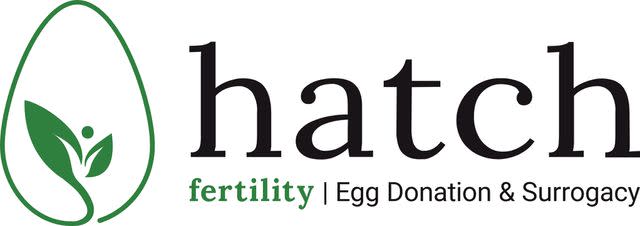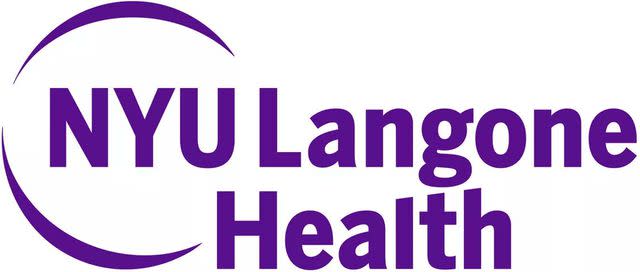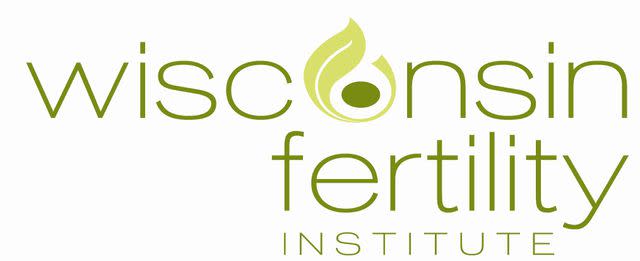The Best Fertility Clinics to Help You Grow Your Family
Dotdash Meredith and Yahoo Inc. may earn commission or revenue on some items through the links below.
We reviewed and compared the best fertility clinics, and Hatch took the top spot.

Anchiy / Getty Images
When you're trying to conceive, you want to do everything possible to increase your chances of success—but sometimes, getting pregnant or otherwise building your family doesn't follow the cookie-cutter path you expected. According to the National Institutes of Health (NIH), about 15% of couples in the United States have trouble getting pregnant after one year of trying. Thankfully, advances in fertility treatments have made it possible for many to expand their families through assisted reproductive technologies (ART), such as in vitro fertilization (IVF).
Even without ART, many fertility clinics help you overcome common obstacles to conceiving, like identifying and treating underlying health conditions or offering lifestyle guidance. Some provide third-party reproduction services, such as egg and sperm donation and surrogacy. Through personalized care and cutting-edge treatment options, the best fertility clinics can give you the support you need to plan for life's next big adventure.
To help you find the right team of experts, we've reviewed dozens of facilities across the United States and compiled a list of the best fertility clinics. Each was selected based on its comprehensive reproduction services, board-certified specialists, advanced technology, and more. Here are the fertility clinics we recommend.
Best Fertility Clinics of 2022
Best Overall: Hatch
Best Without Insurance: Pacific Fertility Center
Best With Insurance: NYU Langone Fertility Center
Best for Egg Freezing: Extend Fertility
Best for Genetic Testing: Columbia University Fertility Center
Best for Surrogacy: Growing Generations
Best for Insemination: Wisconsin Fertility Institute
Best Medical Care Team: Main Line Fertility
Best Overall: Hatch

Hatch Fertility
Key Specs
Cost: $150,000 to $225,000+ for surrogacy package
Insurance accepted?: Yes
Specialties: Egg donation, surrogacy
Why We Chose It
Hatch has helped thousands of intended parents grow their families through third-party reproduction services, including egg donation and surrogacy, with a comprehensive matching process that connects you with surrogates and donors.
Pros & Cons
${listAHeading}
${listBHeading}
Overview
Founded in 1991, Hatch is our best overall pick and a pioneer in the field of reproductive medicine. It's one of the oldest and largest egg donor agencies in the United States, with 99% of Hatch’s intended parents finding success through one of its programs. The agency has helped thousands of families worldwide have children and has expert staff fluent in 13 languages.
Its surrogacy program is one of the most comprehensive in the nation, offering intended parents a wide range of services, from finding a surrogate who has been carefully screened and matched to providing 24/7 emergency support. After an initial consultation with the program director and coordinator, you can choose an egg donor and surrogate from its online network before moving forward with the screening process, embryo transfer, pregnancy, and birth.
Through its egg donation program, Hatch matches intended parents with donor eggs from the top 5% of egg donors in the country. All donors must meet strict medical and psychological criteria, and each donor undergoes rigorous medical screening by an in-house physician specializing in reproductive endocrinology and fertility. Once a match is made, Hatch provides comprehensive legal, financial, and emotional support to both the intended parents and the egg donor throughout the cycle.
While the cost of surrogacy can range from around $150,000 to $225,000 or more, Hatch offers several financing options to make the process more affordable. Its loan program through Future Family helps secure funds for fertility treatments in as little as 48 hours.
Best Without Insurance: Pacific Fertility Center

Key Specs
Cost: Starting at $425 for IUI cycles and $11,595 for IVF
Insurance accepted?: Yes
Specialties: IUI, IVF, egg donation and freezing, surrogacy
Why We Chose It
Pacific Fertility Center offers a full range of fertility treatments and services with upfront pricing, multiple financing programs, and discounted fertility package bundles for IVF.
Pros & Cons
${listAHeading}
${listBHeading}
Overview
Funding fertility treatment without insurance is costly, with one IVF cycle costing around $12,400 in the United States without insurance. Many people undergo three or more cycles before conceiving, which can quickly become financially taxing, especially without insurance. Pacific Fertility Center, a California-based fertility center, is transparent about its pricing and offers multiple financing options and Bundl Fertility Packages to make IVF more affordable.
With over 100 years of combined clinical experience, the physicians at Pacific Fertility Center provide a wide range of fertility treatments, from IUI and IVF to egg donation and freezing, surrogacy, and more. The center also has an on-site laboratory staffed with certified embryologists with expert knowledge of the latest fertility technologies.
For those without insurance coverage, Pacific Fertility Center has several financing options, including payment plans and flexible financing programs through multiple partner companies. The center’s Bundl Fertility program offers IVF and IUI package deals that include risk protection and money-back guarantees for unsuccessful implantation.
Aside from financial assistance, the center also hosts monthly seminars where you can meet expert staff and get your questions answered, or receive ongoing patient education, 24/7 clinical support from physicians and nurses, and counseling services with a licensed therapist. Mind-body workshops—group discussions and activities focusing on the emotions of fertility—are also offered to promote mental wellbeing and relaxation during your fertility journey. It's important to note that travel expenses can add up for patients outside of California.
Best With Insurance: NYU Langone Fertility Center

NYU Langone Fertility Center
Key Specs
Cost: Starts at $12,650 for IVF and $9,200 for egg freezing
Insurance accepted? :Yes
Specialties: IVF, egg freezing, embryo banking
Why We Chose It
NYU Langone has a team of billing professionals ready to work with you and your insurance company to help maximize your fertility benefits and coverage.
Pros & Cons
${listAHeading}
${listBHeading}
Overview
NYU Langone Fertility Center is a comprehensive treatment facility specializing in IVF and egg freezing. The center has a long history of success, with over 30 years of experience helping patients conceive. Based in New York City, NYU's staff of board-certified reproductive endocrinologists, infertility specialists, nurses, and lab professionals provide individualized fertility care in its state-of-the-art facility.
The specialists at NYU work with each patient to create a personalized fertility treatment plan, regardless of the reason for infertility. Services offered include IVF, egg freezing, embryo banking, preimplantation genetic screenings and tests, fertility preservation for cancer patients, gestational surrogacy, and donor sperm and eggs.
Along with the diagnosis and treatment of fertility issues, NYU Langone also offers education and support services to help patients through the process. Its on-site Fertility Wellness Program offers complementary therapy such as acupuncture, yoga, psychotherapy, one-on-one nutritional counseling, and mind-body stress reduction classes. These services are geared toward helping patients relax and manage the stress of fertility treatment.
The facility accepts many major insurance plans, including UnitedHealthcare’s Empire Plan as a Center of Excellence for infertility treatment, UnitedHealthcare, Aetna, OptumHealth, Oxford (select plans), Empire Blue Cross Blue Shield, Cigna, and Progyny. It also offers payment plans with flexible terms through Lending Club, a third-party online lender. That said, the large center and number of staff may make it difficult to form personal relationships.
Best for Egg Freezing: Extend Fertility

Extend Fertility
Key Specs
Cost: Starts at $7,200 for egg freezing and $11,000 for embryo freezing or IVF
Insurance accepted?: Yes
Specialties: Egg freezing, embryo freezing, IVF
Why We Chose It
As the largest egg-freezing center in the country, Extend Fertility has a high success rate for freezing eggs and offers storage plans up to 10 years or longer.
Pros & Cons
${listAHeading}
${listBHeading}
Overview
Egg freezing is a rapidly growing fertility procedure as more and more people are choosing to delay parenthood. According to the CDC, the number of egg-freezing cycles performed in the U.S. increased in 2020 from 2019, with 123,304 completed egg or embryo cycles for frozen storage in 2020. Post-pandemic research from 2021 shows the number of egg-freezing cycles increased by 39% from 2019 to 2020 to late 2020 to 2021. With the help of Extend Fertility, a New York City-based egg freezing center, your eggs can be cryopreserved and stored to help you conceive later in life when the time is right.
Founded in 2016, Extend Fertility is a new player in the egg-freezing arena. Still, the center's team of fertility specialists, including co-founder and chief clinical officer Joshua Klein, M.D.—a board-certified reproductive endocrinologist and fertility expert—has decades of experience helping patients build families.
Extend Fertility quickly grew to one of the nation's largest egg-freezing centers with a mission to make the process more accessible and affordable. Its state-of-the-art facility features an on-site lab and operating room, as well as complementary assessments and consultations for many of its packages. Available services include embryo freezing, infertility testing, and IVF.
Extend Fertility accepts many major commercial insurances, including Cigna, UnitedHealthcare, Aetna, UMR, and more. Financing through third-party providers such as Walnut, Future Family, and Lending Club is also available. Discounts are available to cancer patients, those with specific medical diagnoses, transgender patients, current armed service members, and veterans.
Best for Genetic Testing: Columbia University Fertility Center

Columbia University Fertility Center
Key Specs
Cost: Not disclosed
Insurance accepted?: Yes
Specialties: IVF, third-party reproduction, IUI, egg freezing, embryo banking, donor sperm
Why We Chose It
With an in-house team of genetic experts and counselors, Columbia University Fertility Center is a top choice for those who wish to undergo extensive genetic testing and counseling before or during their fertility journey.
Pros & Cons
${listAHeading}
${listBHeading}
Overview
As part of Columbia University's healthcare system, the Columbia University Fertility Center has all the resources you'd expect from a top fertility clinic. The center offers a full range of services, including IVF (injection and injection-free options), third-party reproduction, IUI, egg freezing, embryo banking, donor sperm, and more.
Perhaps most importantly, the center has a diverse genetic testing program to help you understand your risks for certain genetic disorders and make informed decisions about your care. Another unique feature is the center's innovative egg and embryo storage tank tracking, which allows you and your doctor to track the weight and temperature of your eggs and embryos in real-time—an additional level of security and peace of mind.
If fetal complications are a concern, the center offers comprehensive prenatal care and high-risk obstetrics services with cardiology, neurovascular, and diabetes programs. And, if male infertility is an issue, the center has a dedicated male reproduction program to address those needs as well.
The Columbia University Fertility Center has two New York locations: one in Manhattan and one in Brooklyn. The center accepts most major health insurance plans, but no pricing information is available on the website. It's also unclear whether payment plans or discounts are offered. The lack of transparency in pricing is a potential drawback, as many other clinics list their costs upfront. Most families rely on this information to help them make fertility treatment decisions.
Best for Surrogacy: Growing Generations

Growing Generations
Key Specs
Cost: Ranging from $175,000 to $300,000+ for surrogacy packages
Insurance accepted?: No, unless your plan has specific benefits covering surrogacy and egg donation
Specialties: Surrogacy, egg donation
Why We Chose It
Growing Generations has surrogates in 47 states and a team of experienced reproductive lawyers to help you navigate the legal complexities of surrogacy.
Pros & Cons
${listAHeading}
${listBHeading}
Overview
Surrogacy presents a unique set of challenges, and as such it's important to find an agency with the experience and resources to guide you through the process. Growing Generations has been a leader in fertility services for 25 years and is one of the first agencies to serve gay, single, and HIV-positive men ready to start a family.
The agency offers three surrogacy package options: Concierge, VIP Concierge, and Executive VIP Concierge, each with different levels of support and services. All packages include customized surrogate matching, a case manager, a client expense manager, insurance facilitation services, and more. The rigorous surrogate screening process accepts only the top 2% of applicants, and the agency has an in-house legal team to ensure your state's legal requirements for surrogacy are met. Unfortunately, some states have laws prohibiting surrogacy, so it's important to check your state's laws before beginning the process.
Growing Generations also offers an egg donor database—searchable after creating an online account—where only the top 1% of applicants are accepted. The clinic provides all the support needed through its egg donation program, including medical and psychological screening, legal representation, financial planning, IVF, and more.
Since packages are tailored to your unique desires, the average cost of surrogacy with Growing Generations varies depending on the level of services you’d like, ranging from $175,000 to $300,000 or more. Most insurance companies don't cover the costs associated with surrogacy or egg donation. However, Growing Generations will work with you to determine if your insurance plan has any benefits to offset the cost.
Best for Insemination: Wisconsin Fertility Institute

Wisconsin Fertility Institute
Key Specs
Cost: Starts at $375 per insemination with frozen sperm and $450 with fresh sperm
Insurance accepted?: Yes
Specialties: IVF, IUI, gestational carriers, egg and embryo donation, egg freezing, donor sperm, fertility preservation
Why We Chose It
Wisconsin Fertility Institute offers affordable intrauterine insemination (IUI) with both frozen and fresh sperm by a team of world-renowned infertility specialists.
Pros & Cons
${listAHeading}
${listBHeading}
Overview
Intrauterine insemination (IUI) is an artificial insemination procedure where fresh or frozen sperm is inserted into the uterus using a thin, flexible catheter. The Wisconsin Fertility Institute offers IUI along with other fertility treatments such as IVF, egg and embryo donation, and fertility preservation.
Leveraging a team of board-certified reproductive endocrinologists, lab technicians, and care staff, the Wisconsin Fertility Institute strives to provide comprehensive and individualized care. Since 2007, the clinic has welcomed over 5,000 babies thanks to its fertility treatments, performing IUI daily in its peaceful Middleton-based clinic.
Not only does it offer a range of fertility treatments, but the Wisconsin Fertility Institute also treats gynecological conditions that might affect fertility and hormone balance, such as irregular periods, thyroid issues, and pituitary disorders. And surgical care is available for conditions including endometriosis, abnormal bleeding, and other uterine disorders.
IUI is one of the less-expensive fertility treatments available, and the Wisconsin Fertility Institute's IUI costs start at $375 per insemination with frozen sperm and $450 and up with fresh sperm. Accepted insurance plans include Aetna, Blue Cross Blue Shield, Cigna, UMR, and more. The clinic also offers financing through CapexMD, a third-party fertility financing company with loan programs specifically designed for fertility treatments.
Best Medical Care Team: Main Line Fertility

Main Line Fertility
Key Specs
Cost: Starting at $6,500 for egg freezing and $10,300 for IVF
Insurance accepted?: Yes
Specialties: IVF, IUI, INVOCELL, third-party reproduction, fertility preservation, oncofertility, clinical research trials
Why We Chose It
Main Line Fertility has one of the most qualified medical care teams in the country, with several award-winning reproductive experts boasting major industry achievements.
Pros & Cons
${listAHeading}
${listBHeading}
Overview
Built on the philosophy that every patient is unique, Main Line Fertility offers personalized treatment options and clinical trial programs that may not be available at other fertility clinics.
Using the latest fertility technologies—like its state-of-the-art embryology lab with an on-site laboratory director—Main Line Fertility provides world-class fertility care. The clinic also has an on-site, no-wait egg donor bank with over two thousand available donor eggs. The team works with third-party sperm banks as well, and can help you find the perfect sperm donor to match your needs.
Customizable IVF packages based on specific goals and budgets, fertility preservation for cancer patients, and recurrent pregnancy loss care from a nationally recognized provider make Main Line Fertility one of the best fertility clinics in the country. Its staff is also trained in INVOcell (IVC) technology—an FDA-cleared device placed inside the vagina to incubate eggs and sperm for fertilization—which may be more affordable and less invasive than other treatment options.
Main Line Fertility has six convenient locations throughout Philadelphia and an international patient program to help those traveling from other countries. The facility offers discounts, prescription assistance programs, and financing options through the third-party fertility lender, Future Family. Some insurance plans are accepted, but you must contact the billing department to verify carriers and coverage.
Final Verdict
Fertility care should be individualized and tailored to your life and goals, which is why we chose Hatch as our best overall fertility clinic. With the largest fresh egg database in the nation and a surrogacy program that's second to none, Hatch provides comprehensive and compassionate care for anyone hoping to start or grow their family. However, if you don’t have insurance and are looking for a more affordable option with payment plans, financing, and discounts, Pacific Fertility Center offers money-back guarantees on some of its services.
Compare the Best Fertility Clinics
Company | Cost | Specialties | Insurance? |
Hatch | $150,000 to $225,000+ for surrogacy package | Egg donation, surrogacy | Yes |
Pacific Coast Fertility | Starting at $425 for IUI cycles and $11,595 for IVF | IUI, IVF, egg donation and freezing, surrogacy | Yes |
NYU Langone Fertility Center | Starting at $12,650 for IVF and $9,200 for egg freezing | IVF, egg freezing, embryo banking | Yes |
Extend Fertility | Starting at $7,200 for egg freezing and $11,000 for embryo freezing or IVF | Egg freezing, embryo freezing, IVF | Yes |
Columbia University | Not disclosed | IVF, third-party reproduction, IUI, IVF, egg freezing, embryo banking, donor sperm | Yes |
Growing Generations | Ranging from $175,000 to $300,000+ for surrogacy packages | Surrogacy, egg donation | No, unless your plan has specific benefits covering surrogacy and egg donation |
Wisconsin Fertility Institute | Starting at $375 per insemination with frozen sperm and $450 with fresh sperm | IVF, IUI, gestational carriers, egg and embryo donation, egg freezing, donor sperm, fertility preservation | Yes |
Main Line Fertility | Starting at 6,500 for egg freezing and $10,300 for IVF | IVF, IUI, INVOCELL, third-party reproduction, fertility preservation, oncofertility, clinical research trials | Yes |
Guide to Choosing a Fertility Clinic
What Is a Fertility Clinic?
A fertility clinic is a facility staffed by fertility specialists who provide care and treatment for couples or individuals who are having difficulty conceiving. Some clinics specialize in third-party reproduction, meaning they help patients using sperm or egg donors, while others focus on artificial reproductive technology (ART), like in vitro fertilization (IVF). And some, like Main Line Fertility, do both.
What Infertility Issues Can Fertility Clinics Address?
Fertility clinics can help with a wide range of fertility issues that may prevent you from getting pregnant, including:
Ovulation disorders: If you're not ovulating, or if you're ovulating irregularly, it can be challenging to get pregnant.
Fallopian tube damage or blockage: The fallopian tubes transport eggs from the ovaries to the uterus. If they're damaged or blocked, it can prevent pregnancy.
Uterine abnormalities: Uterine fibroids, polyps, or scar tissue can make it difficult to sustain a pregnancy.
Endometriosis: This is a condition in which the tissue that usually lines the uterus grows outside of it, causing pain and/or infertility.
Male factor infertility: This refers to fertility issues related to sperm. Low sperm count, poor motility, or abnormal sperm can make it difficult to conceive.
Trouble conceiving after previous pregnancy losses: If you've had multiple miscarriages, a fertility clinic can help you discover why it's happening and how to increase your chances of a successful pregnancy.
Fertility experts receive extensive training in reproductive endocrinology and infertility. Providers with this expertise are uniquely qualified to help you pinpoint and address your fertility concerns.
How to Compare Fertility Clinics to Pick the Right One for You
Finding the best fertility clinic for you will require some research. Here are a few things to keep in mind as you compare them:
Cost: Fertility treatments can be expensive, so it's important to weigh the costs of various clinics. Some clinics offer financing options, payment plans, money-back guarantees, or accept insurance, so be sure to ask about this before you make a decision.
Services offered: Each clinic offers a unique set of services, so it's important to find one that provides the treatments you're interested in. For example, if you want to use donor eggs or sperm, make sure the clinic you choose offers this service and has a good reputation for their work in that field.
Success rates: Understanding your chances of a successful pregnancy is important when considering treatment options. Most clinics will provide you with success rates, but it's essential to do your own research to make sure the data are accurate.
Reputation: Take the time to read reviews of fertility clinics to get a sense of their comparative reputations. You can also ask your doctor for recommendations to top-rated clinics in your area.
Location: Many people travel across the country to receive fertility treatments, but this isn't always necessary. There are excellent clinics located all over the United States, so if extensive travel is prohibitive for you, be sure to pick a clinic as close to you as possible.
What Are Some Risks of IVF?
In vitro fertilization (IVF) is one of the most common fertility treatments, but it's not without risks. Before beginning any fertility treatment, it's important to know the potential risks and side effects. Some of the risks associated with IVF include:
Ovarian hyperstimulation syndrome (OHSS): OHSS is a condition that can occur when fertility drugs overstimulate the ovaries. Symptoms include abdominal pain, bloating, nausea, vomiting, and shortness of breath. In severe cases, OHSS can lead to serious complications like kidney failure, blood clots, and stroke.
Egg retrieval complications: The egg retrieval process is performed under anesthesia and carries a small risk of infection, bleeding, or damage to the bowel, bladder, or blood vessels.
Multiple births: IVF increases the risk of multiple births (twins, triplets, etc.), which can lead to premature labor and delivery, low birth weight, and other complications.
Ectopic pregnancy: An ectopic pregnancy occurs when the fertilized egg implants outside of the uterus, usually in the fallopian tubes. This is a potentially life-threatening condition and requires immediate medical treatment. The pregnancy is not viable.
Ovarian torsion: Ovarian torsion is a condition in which the ovary twists on itself, cutting off its blood supply.
Frequently Asked Questions
What Are Some Reasons to Go to a Fertility Clinic?
There are many reasons to consider a fertility clinic. One of the most common reasons is having difficulty conceiving a child. Fertility clinics have the resources and expertise to diagnose and treat fertility problems to improve your chances of conceiving. For example, if you are diagnosed with polycystic ovarian syndrome (PCOS), a fertility clinic can help you get pregnant using special treatments such as IVF. Some people also go to fertility clinics to have their eggs or sperm frozen. Such procedures are performed for many reasons, including before undergoing cancer treatment to preserve fertility, or simply when individuals or couples wish to delay parenthood. Fertility clinics can also help individuals or couples who want to use a sperm or egg donor to conceive via third-party reproduction.
When Should I Go to a Fertility Clinic?
You might want to consider going if you're struggling with infertility, which is defined as the inability to conceive after one year of unprotected penis-in-vagina sex. If you've been trying to get pregnant for a year without success, it might be time to consult with a fertility specialist. Those with a known medical condition that affects fertility, such as endometriosis or PCOS, or who are 35 years old or older, may also benefit from seeing a fertility doctor sooner.
Do Fertility Clinics Accept Insurance?
Insurance policies vary greatly, so it's crucial to check with your carrier to see if your plan covers fertility treatments. Some states have laws mandating that insurers cover fertility diagnosis and treatment, but coverage for specific procedures varies based on the state and insurance company.
Many clinics offer financing options to make care more affordable when your insurance doesn't cover fertility treatments. Loans specifically for fertility treatment are available from some banks and lending institutions, and many fertility clinics offer in-house financing with flexible terms. You can sometimes take advantage of tax breaks for fertility treatments as well, as some procedures are considered medical expenses.
What Questions Should I Ask When Going to a Fertility Clinic?
When meeting with a fertility specialist for the first time, it's important to come prepared with questions. Here are some examples:
What treatment options do you recommend for me?
What are the success rates for these treatments?
What are the risks and potential side effects of the recommended treatment?
How much will this treatment cost, and does insurance cover it?
How long does the treatment take?
What are the clinic's policies on egg and embryo freezing?
What is the clinic's policy on using donor eggs or sperm?
Do you offer any fertility preservation options?
Do you have a legal team in-house to help with donor contracts or surrogacy agreements?
What are the clinic's policies on single parents and LGBTQIA+ couples?
Asking these questions will help you better understand the clinic's procedures, success rates, costs, and policies—and whether they're a good fit for your needs.
Methodology
To find the best fertility clinics, we looked at 32 centers across the country that offer a full range of options. First, we considered each company's services and whether they provide comprehensive care or specialize in a particular treatment. We also took into account the experience and qualifications of each clinic's staff. Innovative fertility treatments and cutting-edge technology were important factors in our decision-making process as well.
Additionally, we looked at the clinic's treatment costs, whether insurance is accepted, and if other payment options are available. We also considered the clinic's success rates, as well as any accolades or awards they have received. Finally, we considered the overall reputation of each fertility clinic, taking into account customer reviews, accreditations, and awards.
Sources
American Society for Reproductive Technology. "Is In Vitro Fertilization Expensive?." https://www.reproductivefacts.org/faqs/frequently-asked-questions-about-infertility/q06-is-in-vitro-fertilization-expensive/
Stat Pearl. "In Vitro Fertilization." https://www.ncbi.nlm.nih.gov/books/NBK562266/
CDC. "Art Success Rates." Accessed October 28, 2022. https://www.cdc.gov/art/artdata/index.html
Fertility and Sterility. "Trends in Elective Egg Freezing Before and After the COVID-19 Pandemic." https://www.sciencedirect.com/science/article/pii/S001502822101195X#
UCLA Health. "Infertility: Symptoms, Treatment, Diagnosis." https://www.uclahealth.org/medical-services/obgyn/conditions-treated/infertility
Clinical Biochemistry. "Fertility and infertility: Definition and epidemiology." Accessed October 31, 2022. https://pubmed.ncbi.nlm.nih.gov/29555319/

